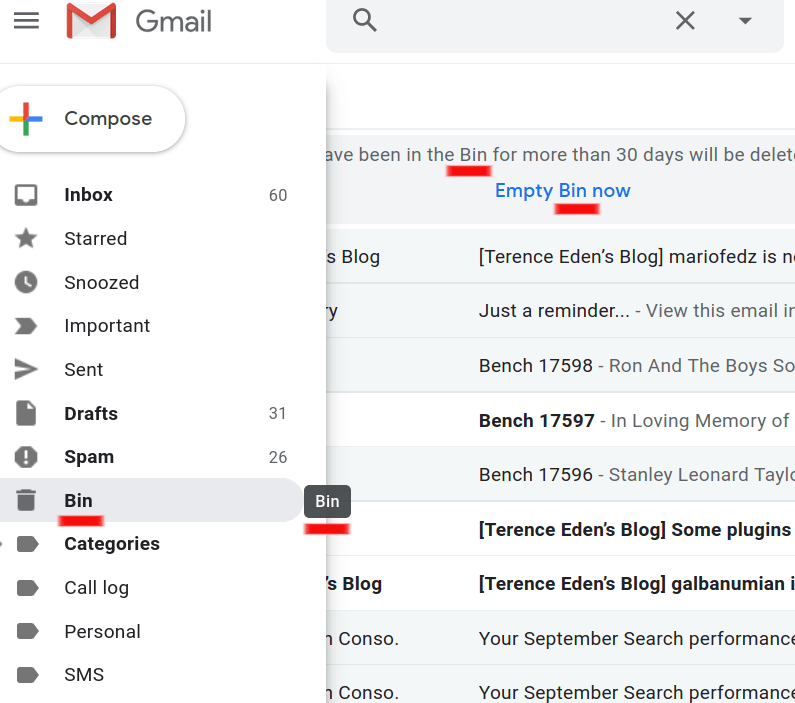Localisation is too hard for Gmail
/ləʊk(ə)lʌɪˈzeɪʃ(ə)n/ The ability to adjust a user-interface to the user's local language or dialect
Because I live in the UK, I speak en_GB (English, Great Britain) rather than en_US (English, Simplified United States).
Mostly, all dialects of English are mutually intelligible. Sure, the Brits love the letter U and the Americans stick a Z in every possible word. But we get along reasonably well. Except in Gmail.
Here's my en_GB localised Gmail interface. Note how there is a folder called "Bin".

Everyone using Gmail in en_GB will know that deleted emails go into the "Bin".
Gmail has a handy search feature to allow you to find emails in a specific folder. For example "Bob in:spam" finds all email containing the word "Bob" in your spam folder. "Proposal in:sent" gets everything you've sent with the word proposal.
But it is impossible to search the "Bin" folder.

Why? Because you have to search the Trash folder. Because that's the names used by Americans.

/hɪˈdʒɛməni/
The same is true even if you've chosen a non-English language.

Sadly, Google don't respond to user complaints or feedback. The best you can do is hope a ranty blog post gets high enough traction on social media. Then, maybe, something will change.
| Reply to original comment on twitter.com
Link: shkspr.mobi/blog/2020/10/l…
Comments: news.ycombinator.com/item?id=248466…
| Reply to original comment on twitter.com
Jan Ciger (@janoc200) says:
Writing Excel macros is now a horrific mess because one macro that works on your PC doesn't work on colleague's who happens to have a French version! Oh and don't ever try to follow some online tutorial - you would need a dictionary at hand and translate all the function names first.
Given that GMail's filters and search are on a similar level as the Excel macros, I would argue that it does make sense to keep those identifiers non-localized. Or accept both variants (which would likely be a huge mess to deal with internally).
But Gmail controls the UI and the logic of Gmail. Are there hordes of people writing complex search queries and sharing them online? Or is it a daily annoyance that you need to remember the syntax and spelling of a foreign language just to find the email you accidentally deleted?
Sven says:
There's a reason why the vast majority of programming languages sticks to english.
Ryan says:
rcron says:
John says:
Dvd says: